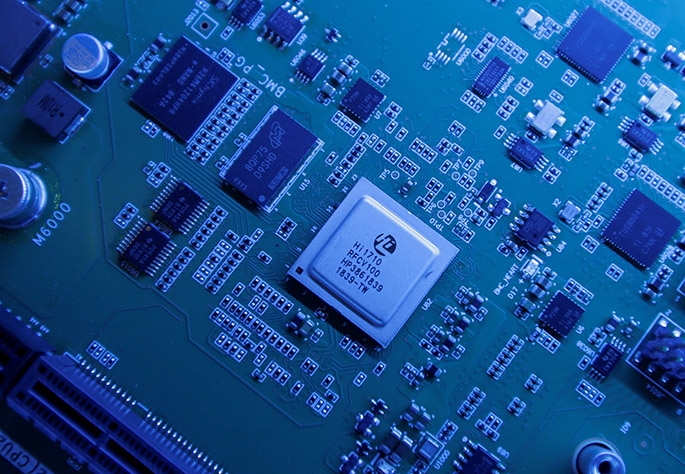Bill Passed to Increase Chip Production in US as Shortage Continues

On February 4, 2022 House Democrats managed to pass legislation that they claim will allow the US to gain an edge over China in the global economic competition through empowering the domestic semiconductor manufacturers and satisfying the chip supply demand.
The vote was pretty close – 222 to 210, marking a significant stage for the Biden administration, however, extensive revisions are probably in the cards. The differences with the bill passed by the Senate in 2021 will need to be reconciled, and President Biden urged the legislators to reach an agreement quickly for the sake of the national economy.
Approximately $52 billion are to be invested in the semiconductor industry in the form of grants and subsidies, and $45 billion will bolster the hi-tech supply chains.
The 3000-page bill also contains other Dem-backed issues that cause concern among GOP members. The costs and scope are among these issues. $3 billion are allotted for facilities that would decrease the reliance of the US on Chinese solar elements; $8 billion are set aside for a foundation that would assist developing countries in dealing with climate change; $4 billion – for assisting communities with higher than average national unemployment rates and $10.5 billion will allow states to stock drugs and medical equipment.
Democrats celebrated the 467,000 additional jobs in January as a milestone accomplishment, and claimed that the passing of the bill would lead to even greater achievements.
The new legislation allows Democrats to tackle people’s concerns about the economy at a difficult time – the shortage of computer chips has recently led to a price hike in the automobile, electronics and medical device industries. To demonstrate his administration’s concern with inflation, President Biden mentioned the vote at a White House event and reminded everyone of Intel's January announcement that the company intends to build two computer chip production plants in Ohio.
Republicans blasted the measure as “impotent” and short of the measures required to hold China responsible for a number of economic and human rights actions. They also stated that it would be a waste of taxpayer money on environmental and other programs that they consider unnecessary.
Commerce Secretary Gina Raimondo, who held a meeting with House Dems this week, said the most urgent measure in the legislation is the $52 billion for domestic chip production. The reasons are clear – first, the effect of the global chip shortage on the international economy, including the automotive sector, and secondly, the national security implications of having the majority of semiconductors manufactured outside of the country.
Major chip manufacturers, Intel and Samsung among them, have recently announced that they intend to build new plants in the USA, but federal assistance, as Raimondo mentioned, would help them to do it faster and on a larger scale.
America's share of global semiconductor production has steadily diminished from 37% in 1990 to about 12% now. The current administration and legislators are trying to reverse this trend, that is propelled by foreign competitors who receive significant government subsidies.
The COVID-19 pandemic has put a major strain on the chip supply chain. According to a recent Commerce Department report, the median inventory of certain semiconductor products dropped from 40 days in 2019 to under 5 days in 2021. The administration cited the results and appealed to the Congress to take action.
Tensions with China are reflected in the bill, i.e., it directs the president to submit a report to Congress on the most likely origin of the virus, and other relevant findings.
Republicans dismissed this provision, and seek to assign a select legislation committee to look into the origins of COVID-19.
Another provision would place tariffs on a greater number of China-manufactured lower-cost products. At this time, imported goods valued under $800 are exempted from expedited processing and tariffs. Meanwhile, the bill eradicates this threshold for some specified countries, most notably China.
The Senate passed the computer chip bill in June 2021 by a vote of 68-32 – a rare display of bipartisan voting on major legislation. Now a compromise acceptable to both chambers is required, although it is unclear whether that can be achieved prior to the midterm elections.
Whatever compromise is produced, it will require 10 Republican votes in the 50-50 Senate to be passed into law.
Source